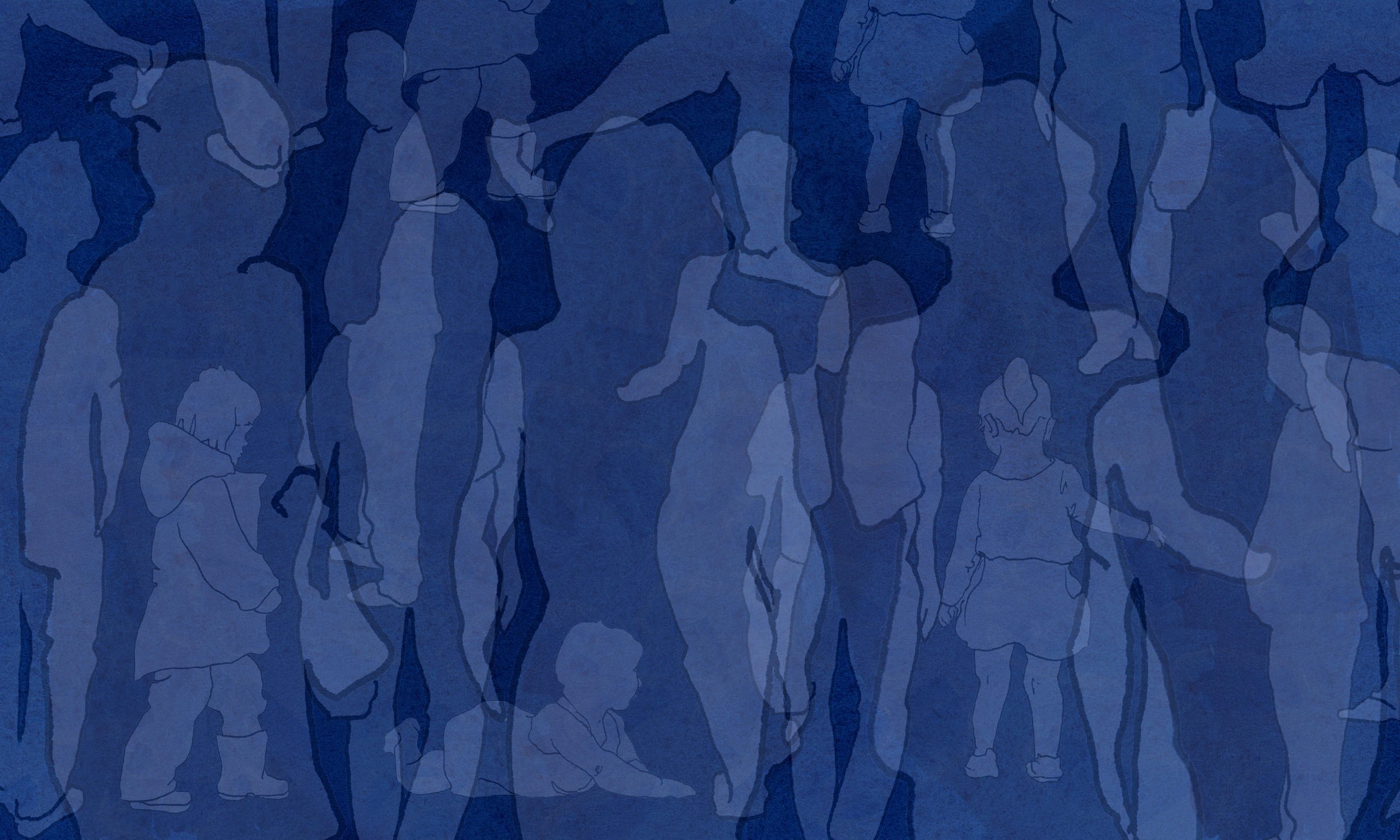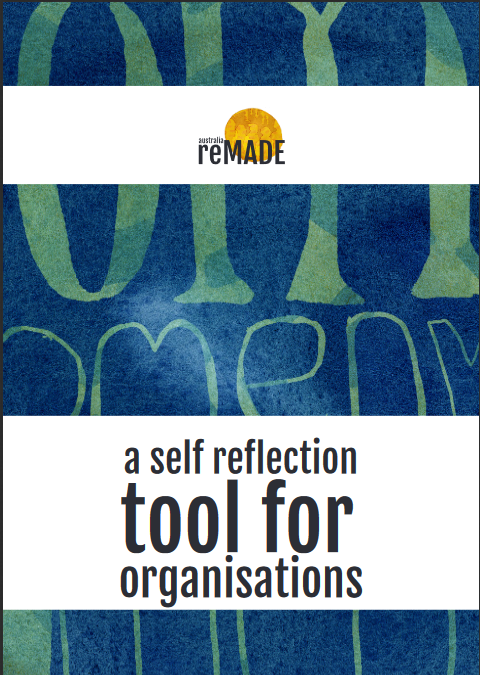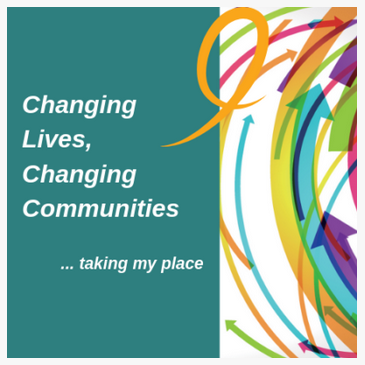“A place where everyone contributes, matters and belongs”
How QCOSS is putting vision into action
We can’t be what we can’t see. So one of our goals at Australia reMADE is to showcase groups of all kinds ‘reMAKING Australia’ and putting vision into action in real, everyday ways.
We talk about the Vision for Australia reMADE as ‘the best version of us’. We know that pockets of this vision already exist, and there are many people working from different angles to make it a reality all across the country.
Following on from our interview with Mark Zirnsak of the Uniting Church, we recently sat down Laura Barnes of QCOSS (Queensland Council of Social Service) to get a different organisational perspective on the art of putting vision into action.
Laura is a Senior Manager for Policy, Advocacy and Capacity with QCOSS, and by the end of our conversation we were ready to move to Queensland and beg for a job (this happens to us a lot talking to inspiring people, occupational hazard).
We had a wide-ranging discussion, from talking about the outcomes of the federal election and what it means to understand regional Queensland; to how QCOSS has shifted their focus from deficit and disadvantage to building communities where ‘everyone contributes, matters and belongs.’
Here’s our conversation.
“A place where everyone contributes, matters and belongs”
Thanks so much for talking with us today Laura. How did you first come to connect with Australia reMADE/A24?
ACOSS was one of the early groups involved in A24 (the early precursor to Australia reMADE). I heard [Greenpeace CEO] David Ritter and [Australia reMADE co-founder] Ann Porcino speak at an ACOSS conference and was so inspired by what they were saying, the vision and the process they had gone through to develop this beautiful document.
At the same time, this vision spoke to some of the work we were doing in working with communities about how to be the best they can be: how to be a community where everyone contributes, matters and belongs. As an organisation we were looking at how we do we reframe the narrative, from a deficit-based to strength-based narrative, both internally and externally?
In part that’s because the stories that exist in the media about ‘dole bludgers’ or ‘refugees stealing our jobs’ are damaging. We feel we really need to change this and turn it around. So Australia reMADE struck me as a great tool and it made feel like we’re not alone.
QCOSS does great communications. Even just looking at your website, it’s real and vibrant; not dry, academic, or problem-focused. This is clearly very deliberate. Is it this a shift for you guys or have you always been this way? Do you set out to lead with vision and values, rather than problems and policies?
It’s a conversation we’ve been having internally for a while, but the change to our public-facing communications is pretty recent. We launched our new website, strategy and branding in May, so it’s been a process over the past 12-18 months.
It represents a fundamental shift in the way we think about our work – from poverty and disadvantage to equality, opportunity and wellbeing.
It represents a fundamental shift in the way we think about our work – from poverty and disadvantage to equality, opportunity and wellbeing. It’s partly in response to the media narrative and how damaging that is to individuals and communities, and it was also a response to the lack of vision that exists in our political democratic process. Governments are really focused on problems, rather than engaging communities on what the future could be and how do we get there.
How is your organisation using Australia reMADE as part of your toolkit in shifting your focus to ‘what could the future be and how do we get there’?
In some ways it’s been an inspiration. It’s given us the sense that we’re not doing this work alone. But practically, there are a number of ways we’re using it.
Internally, we use the Australia reMADE toolkit for organisations. We’ve used it for a staff planning day, which informed the thinking about our reframing, development and strategy moving forward.
We loved that it encouraged us to think deeper, to think to the transformational, and move away from the band-aid solutions to really thinking about systems and structural change in communities. It was a really important part of bringing all our staff on this journey with us.
We’ve also been thinking about how we use the vision in the field, with our “Changing lives, changing communities” projects.
One challenge we’ve had in thinking through how we might use it more in communities is how do you use the vision in a way that allows communities to own it for themselves? Rather than, ‘here, have this vision!’
One of the ideas I had was to approach it as, ‘well, there are nine pillars. Which of those are most important in this community? What do you think you’re doing well at already, which ones need a bit more work and focus?’ Start some kind of conversation around that.
Then maybe pick one or a couple of pillars to focus on and make a plan. Ask, ‘what would it mean to really make this our priority?’ It can be something that’s a strength that we’re already doing really well, or it can be identifying a pillar that’s been a bit of a blind spot and putting our attention there.
But we’ve found the real power and energy in a group comes from asking the right questions, not from having all the right answers.
I love that. So what would your advice be to others wanting to host similar conversations inside their own groups or communities?
It really starts with genuine and meaningful engagement, true conversations about what it would mean to be the best version of ourselves.
Part of that is giving a sense of hope that better is possible. Part of that is about where is the decision-making occurring? Giving people and communities authority, government, power over the decisions that affect them.
Don’t just go in, engage and then go back to make decisions. How do you divulge that power to the local level so communities can make the best decisions themselves?
The questions are so valuable. We use a book and system called ‘Art of Hosting and Harvesting Conversations that Matter.’ Crafting powerful questions is at the heart of that process.
Some of our favourite questions are:
‘What’s alive in the world right now?’
‘What’s alive in your community right now?’
‘What’s alive in you right now?’
‘What would it take to make this community a place where everyone contributes, matters and belongs?’
That’s another place where the vision for Australia reMADE supports us, by using language that’s real for people.
That’s so great. I think you’ve nailed the rockstar question there with ‘what would it take to make this a community a place where everyone contributes, matters and belongs?’ I’m also curious about your take on the election, being in Queensland especially. Are we more divided than we realise? Who are ‘progressives’ not connecting with as well as we could right now?
From our work in regional Queensland, there’s a feeling of being left behind. There’s a feeling that the money all flows to the capital cities and jobs and wellbeing is all focused on capital cities.
There’s a lack of voice, or feeling of no voice, in those communities. And absolutely some of those communities are doing it really tough. A mayor of one for the shires in remote Queensland was saying one day that there is something like 400 rate payers in his entire Shire. It’s a huge area with thousands of kilometres of road to maintain, infrastructure to maintain and so forth, and on a very small resource base.
That kind of situation leads you to focus on the here and now, real practical stuff. It’s all very well and good talking about a vision where x,y, z happen but there are places where people are saying, ‘we can’t pay wages, fix roads, our rubbish is not being picked up’. So there the focus on immediate hip pocket issues takes some priority. That’s not saying it has to be either/or. But we do need to talk about and address both.
Makes total sense. Earlier you mentioned a lack of vision in federal politics. Why do you think there’s been this shift to a more managerial, problem-focused approach? Or has it always been this way?
It does feel to me that it has gotten worse. My personal reflection on the latest federal election results is two things: firstly, it’s the effects of the neoliberal influence – the focus on the individual implicit in neoliberal framing that says individuals are responsible for their own wellbeing. Which is partly true, but it’s also about how we work together to support all those individuals that can really make a difference to communities.
The other part of the problem is fear of being a big target, fear of being visionary, always having to focus on a three-year electoral cycle makes government look for quick wins rather than long-term strategy.
So where to from here? What’s next for QCOSS, and are you optimistic about the future?
Here in Queensland we are coming up for another state election, so we see a great opportunity to call on government – whoever is the government of the day – to do that visionary piece. We want a government that has a vision, that engages communities in setting that vision and takes action to progress that vision.
We will be continuing to push that through to our election next year. It’s something that seems to have resonance, along with understanding that no one part of society (be it government, community, business, etc) can do this work alone. That idea of joining forces and working together for a better community has traction.
Our work in the communities around QLD gives us incredible hope. There is a real appetite for change; for more inclusive, supportive and engaged community. Part of our work in this next 12 months is we’re going back to the original 12 communities we went to in the first stage of our Changing Lives, Changing Communities project and having a second round of conversations where we map out the next steps. So yes, I’m very optimistic about the future.
Thank you Laura for sharing your wisdom with us today and best wishes for the wonderful work that you’re doing.
A big thank you to Laura Barnes and QCOSS for their work and sharing these insights with the Australia reMADE community. We’ve included some resources and further background information for you to check out below. If you have any questions or want to get in touch, email our National Coordinator, Dr Millie Rooney.
For our part, we’ll continue to bring you stories of people and groups putting vision into action. Our next interviews are about election campaigns that are changing politics and transforming communities. Be sure to follow us on social media or subscribe to the newsletter if you haven’t already.
More about QCOSS
QCOSS is a peak body for the social services sector, and a voice for people experiencing poverty or disadvantage. They both engage directly with individuals, and with the underlying systems and structures that do or do not support individuals to thrive. They work with service providers, engage communities in conversations directly, and provide a conduit of information to and from government and policy-makers to the community and the sector.
QCOSS member organisations include very large service providers (eg: Uniting Care, Anglicare) – across to one-person or volunteer-run organisations and community centres. While they have Queensland focus, they engage in issues at a federal level as well.
QCOSS is part of a network of Councils of Social Service around the country in every state and territory, in addition to the national peak body, ACOSS.
“Our vision is to achieve equality, opportunity and wellbeing for every person, in every community. We believe that every person in Queensland – regardless of where they come from, who they pray to, their gender, who they love, how or where they live – deserves to live a life of equality, opportunity and wellbeing.” - QCOSS
Resources and further reading
Australia reMADE resources (which we’re updating, improving and expanding on - your feedback welcome!)
LILIAN SPENCER
Lilian Spencer is a writer and communications advisor for mission-driven organisations. She helped craft the Australia reMADE Vision and now leads Australia reMADE’s ongoing communications strategy and engagement work.
Lily believes that the secret to change is to “focus your energy not on fighting the old, but on building the new.” (-Way of the Peaceful Warrior, Dan Millman)








